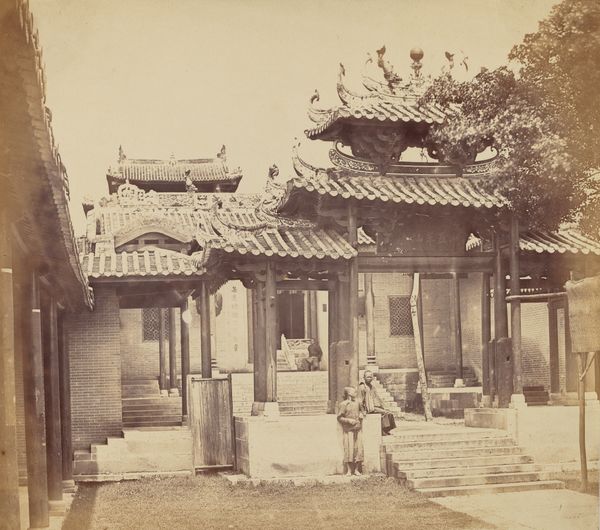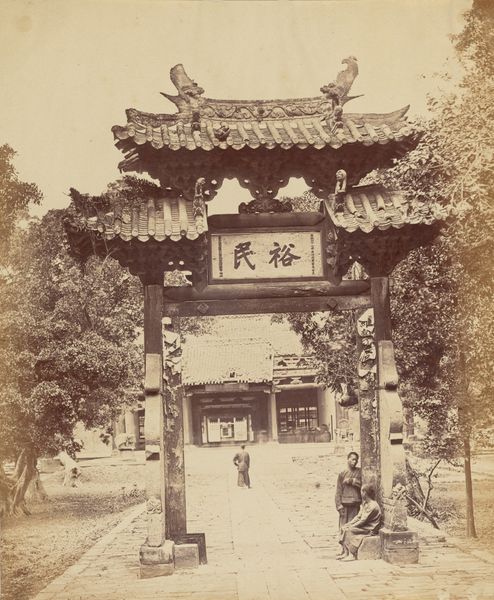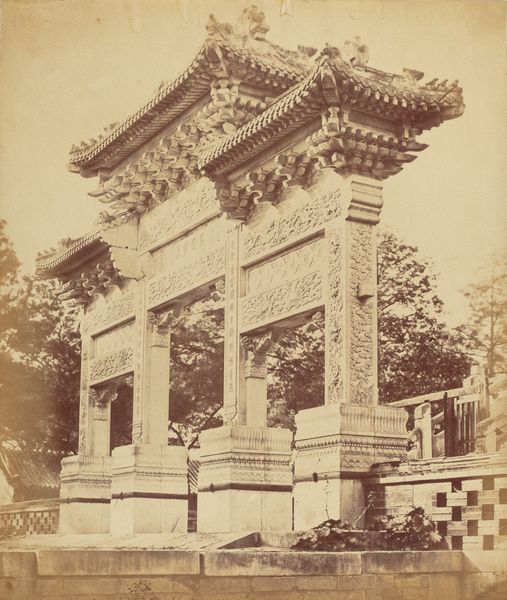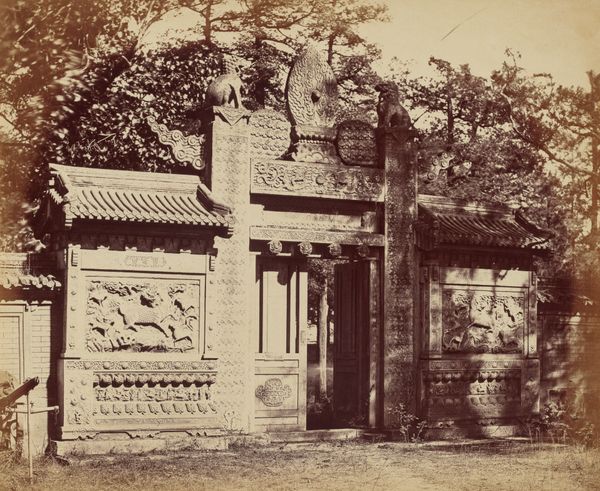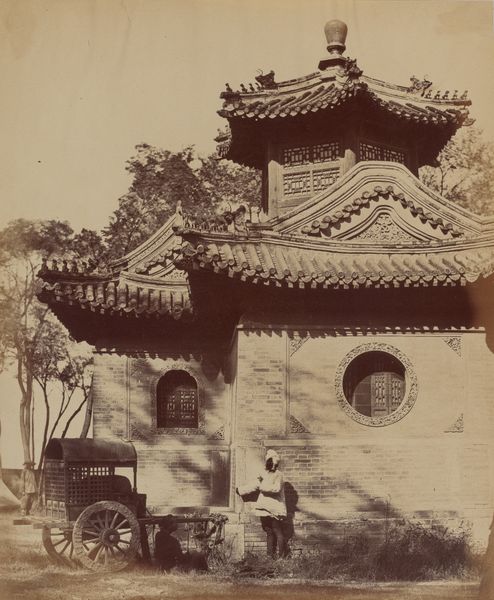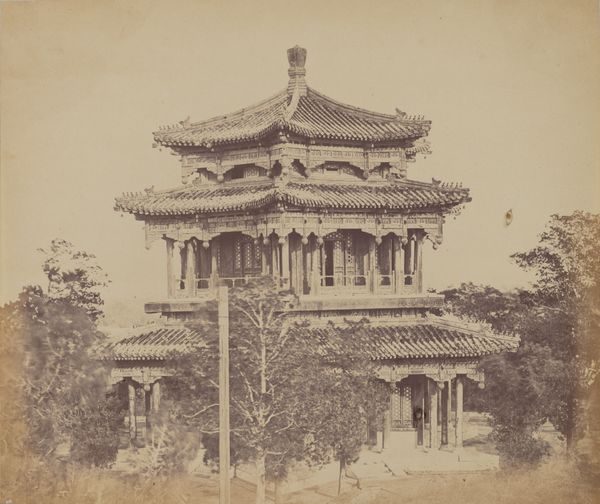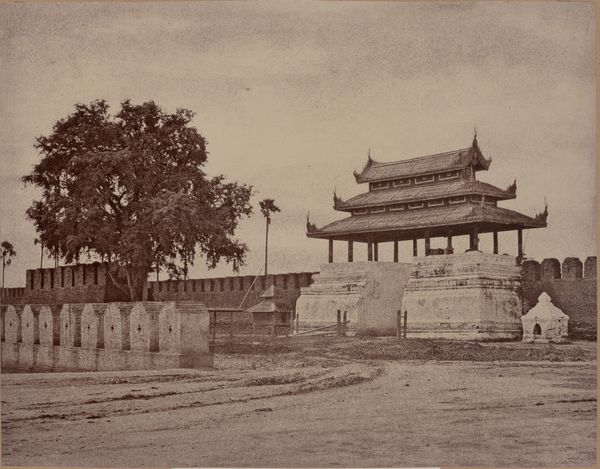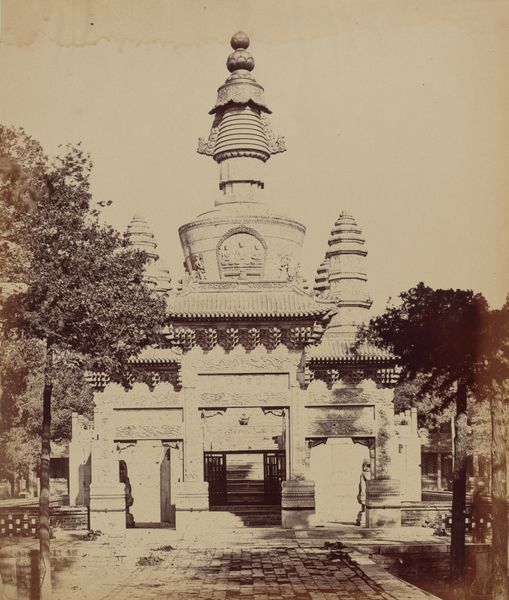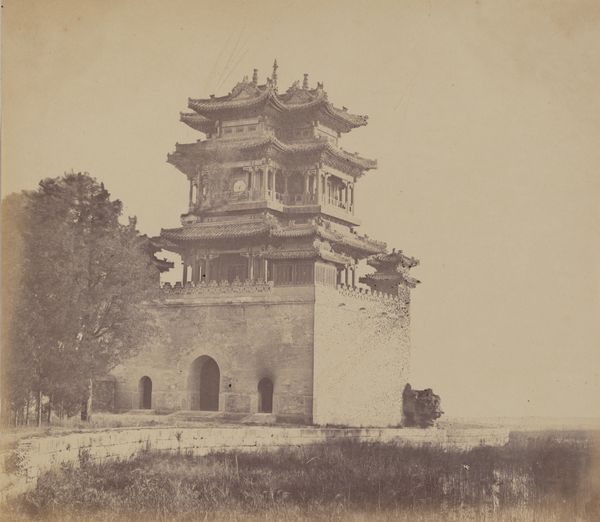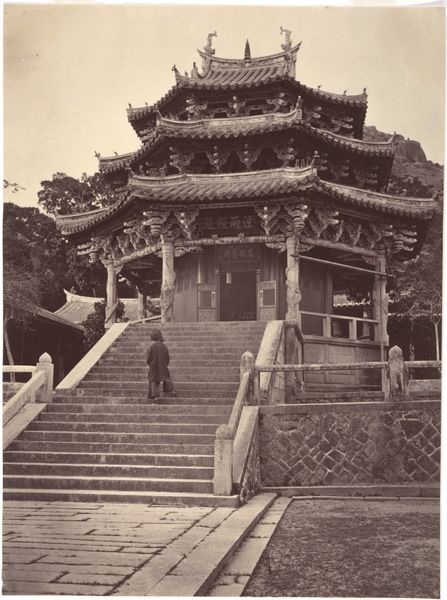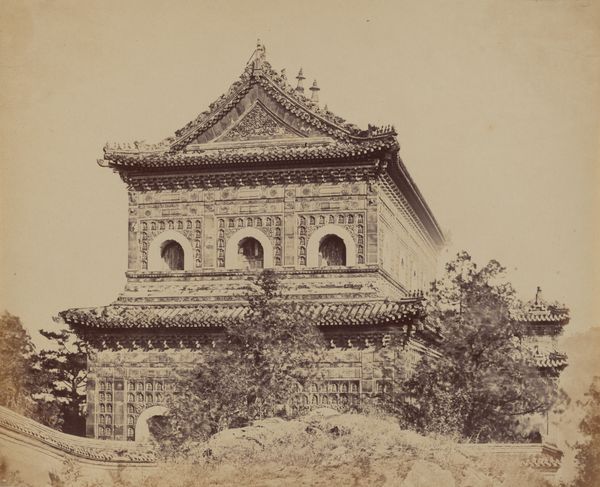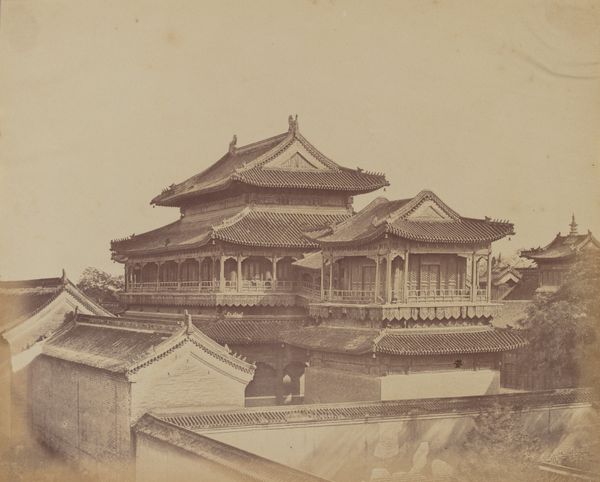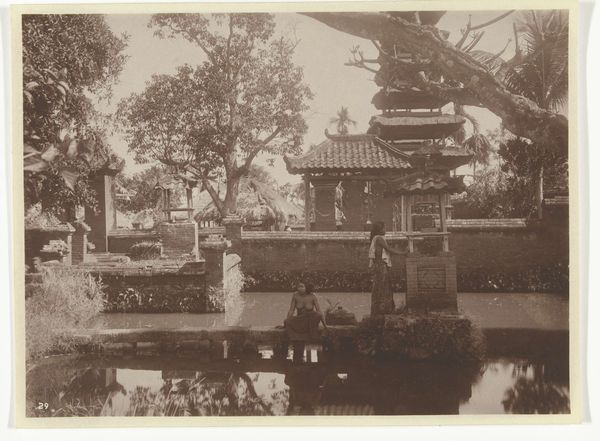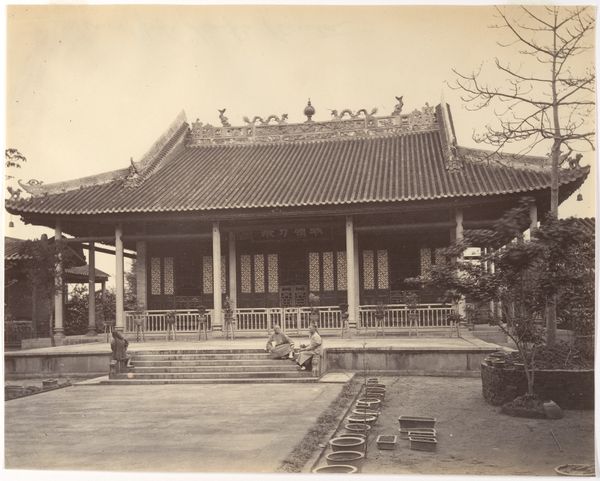
Part of the Entrance to the Lama Temple Near Pekin, October 1860 1860
0:00
0:00
print, daguerreotype, photography
# print
#
asian-art
#
landscape
#
daguerreotype
#
historic architecture
#
traditional architecture
#
photography
#
ancient-mediterranean
#
19th century
#
watercolor
Dimensions: image: 29.2 × 23.7 cm (11 1/2 × 9 5/16 in.) mount: 31.2 × 25 cm (12 5/16 × 9 13/16 in.)
Copyright: National Gallery of Art: CC0 1.0
This photograph of the Lama Temple near Peking was captured by Felice Beato in October 1860, using the collodion process to create a salted paper print. The collodion process was revolutionary for its time, requiring a portable darkroom to prepare, expose, and develop the glass plate negatives on-site. Beato's choice of this process speaks to his intention to document the world with a then-modern technology. The albumen print, made from a paper coated with egg white, gives the image a distinctive sheen and depth, highlighting the intricate carvings and stonework of the temple entrance. Consider the labor involved: from quarrying and carving the stone, to the meticulous photographic process. The photograph itself becomes a document of cultural exchange and perhaps even exploitation, raising questions about the photographer's role in representing a place and culture far from his own. It makes you consider the wider social issues of labor, politics, and consumption in the mid-19th century.
Comments
No comments
Be the first to comment and join the conversation on the ultimate creative platform.
